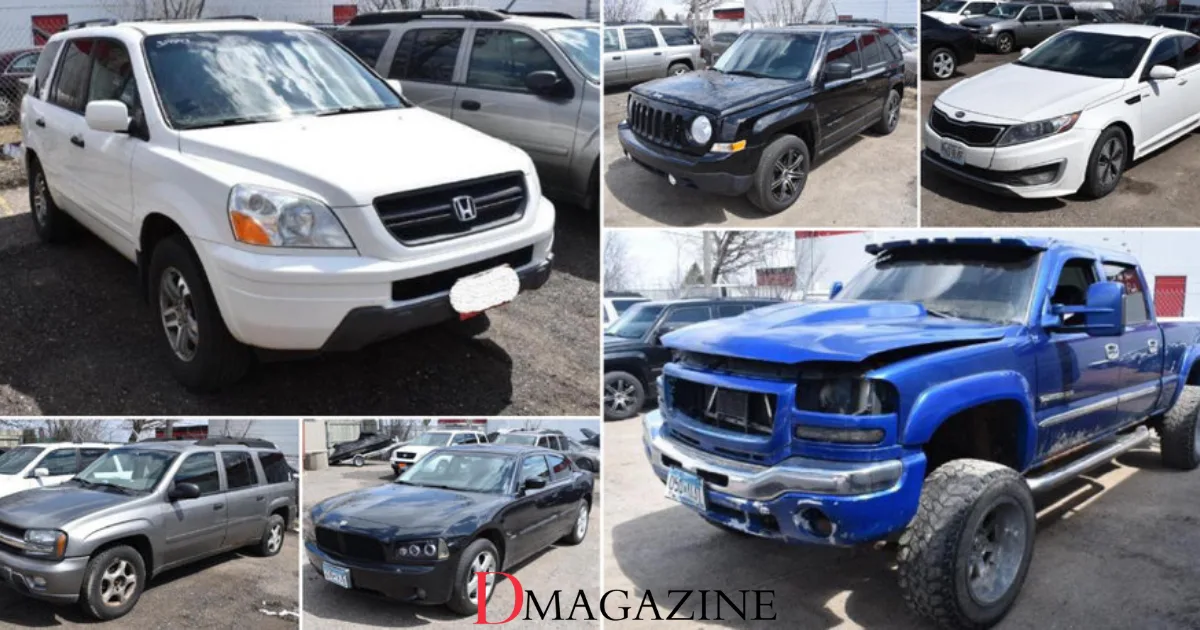How to Buy Bank Auction Cars in 2025 (The Smart Way)

Buying a car from a dealership can be expensive, especially with rising vehicle prices in 2025. But there’s a lesser-known option that smart buyers are using bank auction cars. These are repossessed vehicles that banks sell at auction to recover unpaid auto loans.
In this article, you’ll learn everything about how bank auctions work, how to find the best deals, and what to watch out for before placing a bid. Whether you’re looking for a personal ride or planning to flip cars for profit, this guide is for you.
Table of Contents
What Are Bank Auction Cars?
Bank auction cars are vehicles repossessed by banks or financial institutions when a borrower fails to repay the loan. Once repossessed, the car is listed for auction open to the public or through a third-party platform.
Why Are They So Cheap?
- Banks want to recover money fast, not make a profit.
- Cars are sold as-is without the dealer markup.
- Many are in good condition, with low mileage.
Where to Find Bank Auction Cars
Finding these cars is easier than you think. Here are the best places to start:
1. Official Bank Websites
Many banks like SBI (India), ICICI, HDFC, and others have dedicated auction portals.
2. Online Auction Platforms
Websites like:
- Manheim (US)
- Copart
- AuctionZip
- Government Auctions UK
3. Local Classifieds & Newspapers
Banks still list auctions in local papers, especially in small towns.
4. Real Estate Auction Portals
Surprisingly, many vehicle auctions are also listed on repossessed property auction websites.
Steps to Buy a Car at a Bank Auction
1. Register for the Auction
Most auctions require pre-registration online or on-site.
2. Research Listings
Check:
- Vehicle Identification Number (VIN)
- Make, model, year
- Reserve price (if available)
3. Inspect the Car
Look for signs of:
- Accident damage
- Engine wear
- Electrical issues
Tip: Bring a mechanic or get a pre-auction inspection report.
4. Set a Maximum Bid
Know your budget and stick to it—bidding wars can drive up prices.
5. Attend and Bid
Online or in person—follow the auction rules. Some auctions allow proxy bidding.
6. Make Payment
Winners usually must pay within 24–48 hours.
Pros and Cons of Buying Bank Auction Cars
| Pros | Cons |
| Lower prices than market | Sold “as-is”, no warranty |
| Wide range of vehicles | May have hidden issues |
| Transparent process | Inspection opportunities are limited |
| Potential for great deals | No return or exchange |
Tips to Avoid Common Mistakes
- Avoid Emotional Bidding: Set your price limit beforehand.
- Read the Fine Print: Understand auction terms and car conditions.
- Check for Loan Clearance: Ensure no outstanding dues or legal disputes.
- Factor in Additional Costs: Registration, insurance, repairs, etc.
Conclusion: Is a Bank Auction Car Right for You?
If you’re hunting for a budget-friendly vehicle or investing in used cars, bank auction cars are a smart choice in 2025. With the right research, inspections, and strategy, you can land high-quality vehicles at prices far below market value.
Start by checking local auction sites and bank listings today. Don’t miss your next big deal on wheels!
FAQs About Bank Auction Cars
Yes, many are well-maintained. But always inspect them before bidding.
Some banks and credit unions offer auto loans for auction purchases, but terms vary.
Most are, but check inspection reports. Some may require repairs.
Usually, only a valid ID is needed. For commercial auctions, a dealer license may be required.
You may lose your deposit. Read terms carefully before bidding.






